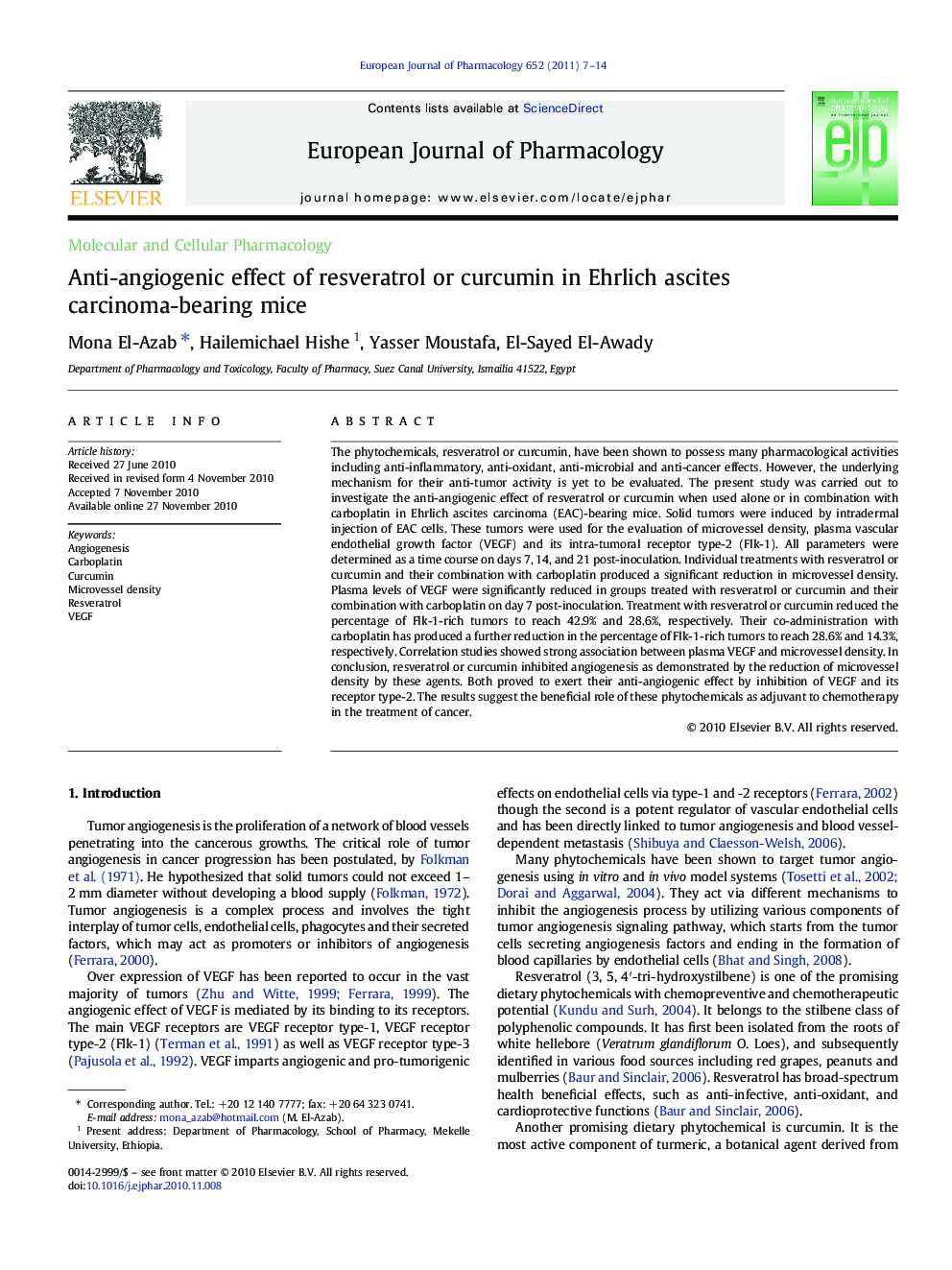| کد مقاله | کد نشریه | سال انتشار | مقاله انگلیسی | نسخه تمام متن |
|---|---|---|---|---|
| 2532989 | 1559038 | 2011 | 8 صفحه PDF | دانلود رایگان |

The phytochemicals, resveratrol or curcumin, have been shown to possess many pharmacological activities including anti-inflammatory, anti-oxidant, anti-microbial and anti-cancer effects. However, the underlying mechanism for their anti-tumor activity is yet to be evaluated. The present study was carried out to investigate the anti-angiogenic effect of resveratrol or curcumin when used alone or in combination with carboplatin in Ehrlich ascites carcinoma (EAC)-bearing mice. Solid tumors were induced by intradermal injection of EAC cells. These tumors were used for the evaluation of microvessel density, plasma vascular endothelial growth factor (VEGF) and its intra-tumoral receptor type-2 (Flk-1). All parameters were determined as a time course on days 7, 14, and 21 post-inoculation. Individual treatments with resveratrol or curcumin and their combination with carboplatin produced a significant reduction in microvessel density. Plasma levels of VEGF were significantly reduced in groups treated with resveratrol or curcumin and their combination with carboplatin on day 7 post-inoculation. Treatment with resveratrol or curcumin reduced the percentage of Flk-1-rich tumors to reach 42.9% and 28.6%, respectively. Their co-administration with carboplatin has produced a further reduction in the percentage of Flk-1-rich tumors to reach 28.6% and 14.3%, respectively. Correlation studies showed strong association between plasma VEGF and microvessel density. In conclusion, resveratrol or curcumin inhibited angiogenesis as demonstrated by the reduction of microvessel density by these agents. Both proved to exert their anti-angiogenic effect by inhibition of VEGF and its receptor type-2. The results suggest the beneficial role of these phytochemicals as adjuvant to chemotherapy in the treatment of cancer.
Journal: European Journal of Pharmacology - Volume 652, Issues 1–3, 10 February 2011, Pages 7–14